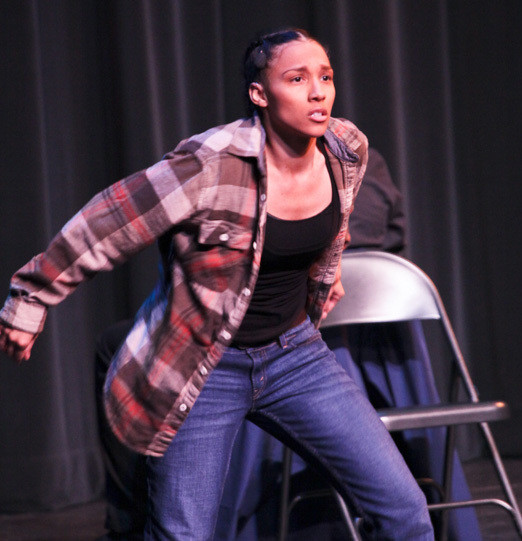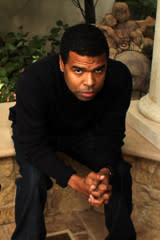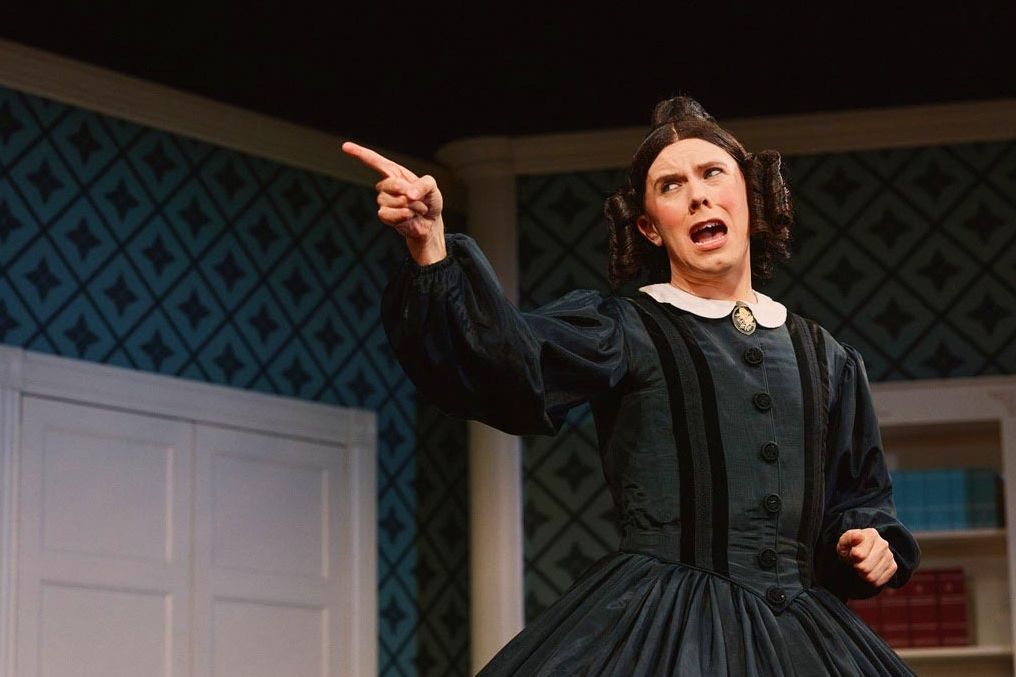Playwright Rickerby Hinds on Making Poetry from Police Brutality

That heart-sinking feeling of hearing about yet another black teenager dying at the hands of police in America has become all too familiar. Just last month, our country mourned the loss of Michael Brown, the unarmed black 19-year-old fatally shot six times by police officer Darren Wilson in Ferguson, Missouri, and watched nervously as riots broke out. The details and the people involved were unique, but we knew the shape of the story. We’d seen it before, and we fear we’ll see it again.
Rickerby Hinds, a playwright and professor of playwriting at the University of California, Riverside, set out to address this historically conflicted relationship in his hip-hop-influenced play Dreamscape. He chose the story of Tyisha Miller, a 19-year-old African American woman who, in 1998, was shot 12 times to death by four police officers after they found her foaming at the mouth in the front seat of her car, seemingly unconscious, with a semi-automatic pistol in her lap.
Based off of meticulous research, Hinds uses element of hip-hop, including beat boxing, spoken word poetry, and dance, to tell the details of Miller’s story. Dreamscape will run at the Milagro Theatre this Friday and Saturday, September 19–20, as a part of its Latino Arts and Culture festival, “La Luna Nueva.”
We spoke with Hinds about the development of Dreamscape, what it was like to meet one of the officers, how and why hip-hop culture influences his productions, and what his play means for America in 2014.

Dreamscape's Rickerby Hinds
PoMo: First, some background on the creation of Dreamscape; I know the inception process started some 10 years ago.
Rickerby Hinds: Dreamscape was a play that I was pretty reluctant to write. I knew about the incident when it occurred in 1998, but I was hesitant to write about it because I didn’t want to appear to be capitalizing on a tragedy.
Why Tyisha Miller’s story, opposed to the countless other teenagers who have died at the hands of police in America?
She was a young woman, and more often than not these cases involve young African American men who are being shot, or detained, or abused by the police. I found that to be out of the ordinary and even more disturbing. The other thing was that the situation of her shooting was so unusual.
Are you familiar with Anna Deavere Smith’s style of documentary theater? Her technique seems similar to what you’ve done with Dreamscape.
I’ve seen the work of Anna Deavere Smith and known about that process, and it’s actually something that I want to do in a more direct way. With Dreamscape, it was just kind of the way the story developed. When I started reading the coroners report, the officers’ testimonies, and the 9-1-1 calls—which are all included in the play—I thought to myself, “the brilliance in this writing—I would be an idiot to try and write something more compelling than what was already written in those words.”
For instance, there are two places were it resonated with me so much. One place was when the officer was describing Tyisha Miller when he saw her sitting in the car, and he said, “her breathing was shallow and her eyes were closed.” The description of her sitting in the car in some state of seizure almost sounded like a description of someone when they’re in the throes of passion. I pulled that exact description and used it for when she talks about her first time she was with a boy. The only thing I changed was “she was foaming at the mouth.”
Dreamscape plays as part of Milagro Theatre's annual Latino Arts and Culture Festival, La Luna Nuevo
Milagro Theatre
Sept 19–20The other place is when the coroner was describing her body parts. He describes her lungs, the different organs, and the final organ he describes is her heart. The description says that her heart was “smooth and glistening.” That’s the actual description of the heart by the coroner.
Did you ever reach out to the coroner or officers?
Two years ago we did a performance at UC Riverside, and I received a message from someone basically saying, “There was THC in her system, and I hope the professor did his research to find out she was in gangs,” and this and that. My response to this person was: “Okay, why don’t you come see the play.”
After the performance I messaged this person back asking if they had made it to the performance. He responded, “No, I didn’t. And full disclosure: I was actually one of the officers who was there that night, and I didn’t think I’d be welcome at the performance.” I said, “Let’s go to lunch.”
We talked for about an hour and come to find out that this is the officer whose words we use in the play. He told me, “Look, I was on the force for six months, and this was a heightened situation, and I broke the window and heard a bang. I thought she was shooting at me, so I started shooting and my fellow officers started shooting.”
And then he said to me, “What I discovered later on is that the shot that went off was from one of my fellow officer’s guns.” He said he lives with it everyday and wishes he could change things but, you know, it is what it is.
I wish he had seen the play. Officers who have seen the play have said that the way it deals with the police is not demonizing; it’s not to turn the police officers into devils and her into a saint. That’s bad storytelling.
How has the death of Michael Brown affected or influenced recent performances of Dreamscape?
Obviously the Ferguson situation has resonated. We always do a talkback after the performance, giving the audience the opportunity to talk with the actors and myself, and the kind of passion that has followed the play has always been there. Ferguson just exacerbated that passion.
What is it about hip-hop that lends itself to the productions you write?
Hip-hop allows for stories to be told in a more disjointed way. Hip-hop plays around with time in two specific ways. One is through DJing, where the DJ is a timekeeper and can speed a record up or slow it down. Metaphorically it allows you to traverse time in a very different way than in a linear, traditionally theatrical way.
The other thing it allows me to do is use samples. By using samples I can say a whole lot with less. A sample will bring certain familiar things to different people and they can infuse the narrative with much more than one could if I tried to go into all the nuances of what I’m talking about.




